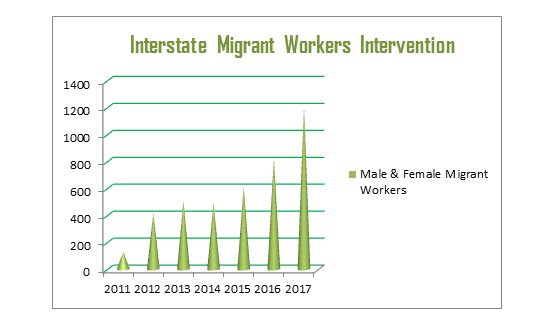LRC
LRC was launched in the year 2000, towards advancing awareness among garment workers on the rights of workers and fair practices. The LRC has been organising workers into Workers’ Education Groups (WEGs) and federates them at cluster levels.
LRC educates Garment workers on their rights and labour laws pertaining to their work, collective bargaining, social dialogue and gender inclusivity. Need-based facilitation is facilitated with trade unions and the government labour department by LRC.

Federation Structure
The Federation provide workers with a powerful, collective voice to communicate to management their dissatisfaction and frustration arising on any count and negotiate better terms and conditions on all aspects of their worklife.

HIV/AIDS Awareness:
LRC further undertakes awareness education on the mode of spread of sexually transmitted diseases and HIV/AIDS, their prevention, promotion of health-seeking attitude, and behavioural changes on the consistent usage of correct protective measures.

Intervention with Interstate Migrants
The rising inequities in job and income opportunities between urban and rural India have led to an unprecedented movement of labour force across the length and breadth of the country into Tirupur, majorly from states such as Bihar, Jharkhand, Odisha, West Bengal, Assam, Uttar Pradesh, Madhya Pradesh, Andhra Pradesh, Karnataka, and Kerala, and from Nepal. Their migrant status exposes them to a number of vulnerabilities. LRC intervene with them to promote health-seeking behaviour and rights-based education.


Helping Businesses Comply with Human Rights
Since 2010 LRC has been aiding businesses to respect human rights within their work units and comply with statutory requirements which include Internal Complaints Committee for Sexual Harassment, Committees on Health and Safety, Grievance Redressal, Works, and Canteen Management. These Committees are formal channel for workers to route their complaints on sexual harassment and other grievances of rights’ violations at the workplace, enhancing scope for resolution..

